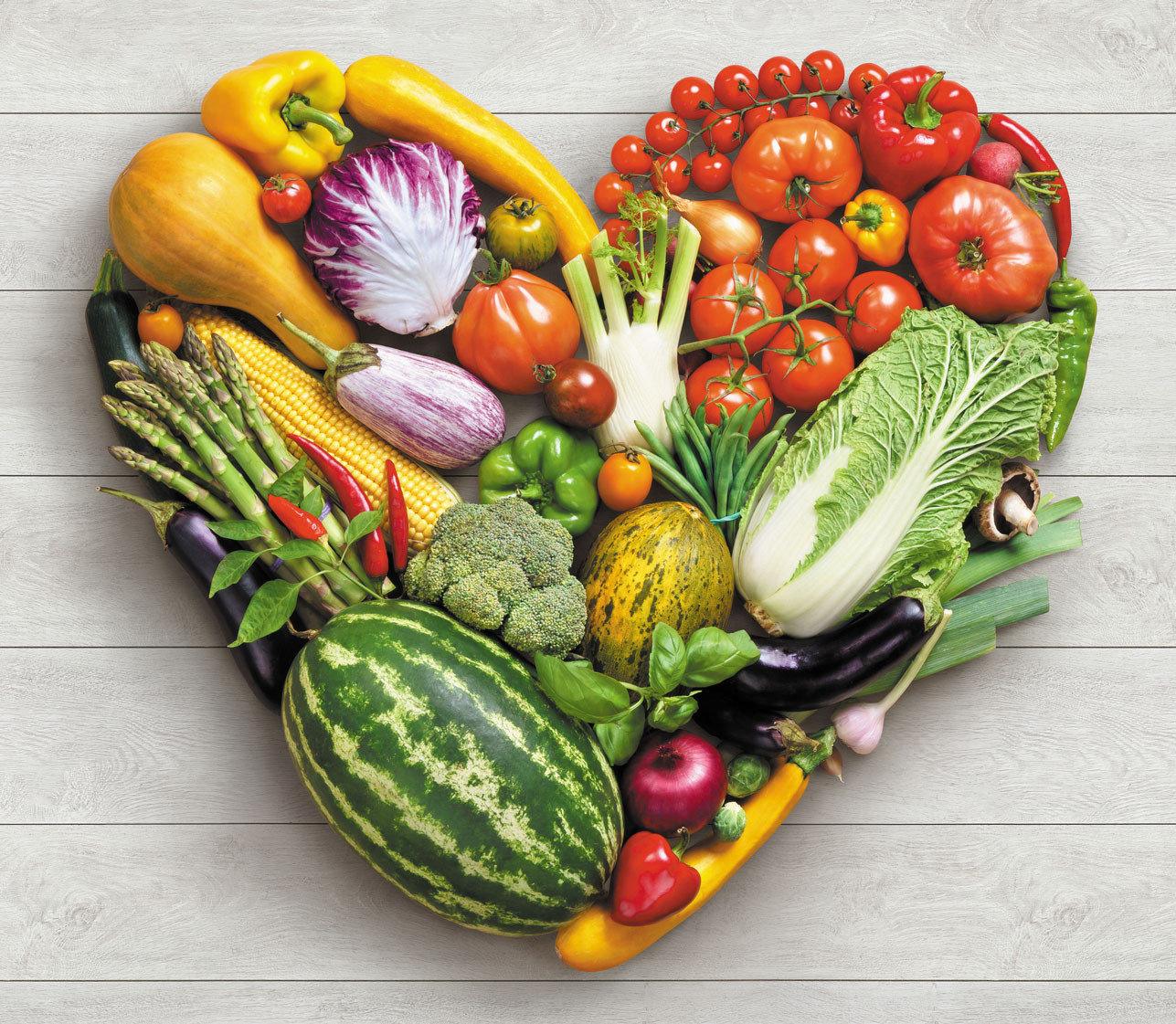Finding the Advantages of Plant Based Dishes in Encouraging Healthy Food Choices
Plant-based dishes offer countless advantages that can enhance healthy and balanced eating behaviors. They prioritize nutrient-dense ingredients, adding to general health. These meals are abundant in vital vitamins and minerals, which can bring about enhanced power levels and food digestion. Additionally, they play a considerable duty in weight monitoring and chronic condition prevention. Nonetheless, the effects prolong past personal health and wellness, discussing environmental sustainability. Discovering these facets exposes an engaging instance for incorporating extra plant-based foods into day-to-day diet regimens.
Understanding Plant-Based Diet Plans
What specifies a plant-based diet? A plant-based diet largely contains foods obtained from plants, consisting of vegetables, fruits, nuts, grains, and seeds. While it stresses plant foods, it is not always vegan or vegan; some individuals might consist of small amounts of animal products. The core principle focuses on focusing on plant foods for their dietary advantages and ecological sustainability. This diet encourages the usage of entire, minimally refined foods, usually leading to an enhanced consumption of essential nutrients. Additionally, plant-based eating promotes culinary creativity, as individuals check out varied recipes and flavors. Ultimately, a plant-based diet plan can be adjusted to fit different way of lives and preferences, making it a versatile selection for those looking for to include even more plant foods right into their meals.
Health Perks of Plant-Based Cuisines
A plant-based diet plan provides a wide range of health benefits that can enhance total health. Research study suggests that individuals following this diet typically experience reduced risks of chronic conditions, such as heart condition, diabetes mellitus, and particular cancers. Rich in anti-oxidants, vitamins, and minerals, plant-based dishes sustain immune function and promote mobile wellness. Additionally, these diet plans are generally high in dietary fiber, which assists food digestion and helps keep healthy cholesterol degrees. The addition of entire foods, such as fruits, vegetables, beans, and whole grains, adds to boosted energy degrees and mental quality. In addition, the anti-inflammatory properties found in numerous plant-based foods can aid decrease swelling in the body, promoting far better joint and cardiovascular health.
Effect On Weight Management
The influence of plant-based meals on weight monitoring can be significant because of their nutrient thickness and lower caloric intake. These dishes often supply essential nutrients while reducing vacant calories, advertising healthier eating behaviors. Because of this, people might find it simpler to shed or maintain weight with a plant-based diet regimen.
Nutrient Thickness Benefits
While numerous diets focus on calorie limitation, the principle of nutrient thickness supplies a more holistic technique to weight administration. Nutrient-dense foods are rich in vitamins, minerals, and antioxidants while being lower in calories. This enables individuals to take in bigger sections without surpassing their caloric requirements. Plant-based meals, which commonly consist of fruits, veggies, entire grains, and legumes, exemplify nutrient density. These foods not only support weight management but additionally advertise satiation, lowering the chance of over-eating. Additionally, a high intake of nutrient-dense foods can result in enhanced metabolic health and wellness, as they offer the required nutrients for peak physical feature. Inevitably, focusing on nutrient thickness can assist in much healthier eating patterns and add to lasting weight administration techniques.
Decreased Calorie Consumption
Lowered calorie consumption plays a considerable role in effective weight monitoring, as it straight affects a person's energy balance. Plant Based Chicken. Plant-based meals are generally lower in calories while being abundant in vital nutrients, making them an optimal option for those looking for to decrease calorie intake without compromising nutrition. By incorporating much more fruits, vegetables, entire grains, and vegetables, people can take pleasure in bigger part sizes that advertise satiety. This strategy not only aids in weight reduction yet likewise fosters lasting eating behaviors. Furthermore, plant-based diets often minimize the intake of refined foods high in added sugars and unhealthy fats, which can contribute to excess calorie intake. Inevitably, a focus on plant-based dishes can support much healthier weight management approaches and long-term wellness
Minimizing the Threat of Chronic Illness
Incorporating plant-based dishes right into one's diet can considerably reduce the threat of chronic illness. Many researches demonstrate that diets abundant in fruits, veggies, entire grains, and legumes are related to lowered incidences of heart problem, diabetes, and specific cancers. The high fiber material of plant-based foods adds to much better gastrointestinal health and wellness and boosted cholesterol levels, while anti-oxidants and phytochemicals discovered in these foods might aid battle swelling and oxidative stress. Additionally, plant-based diet regimens are generally lower in saturated fats and cholesterol, additional promoting cardiovascular health and wellness. By prioritizing plant-based choices, individuals can improve their general wellness and create a healthier lifestyle that mitigates the likelihood link of developing chronic health problems, thus fostering a more resistant body.
Ecological Sustainability of Plant-Based Consuming
How can plant-based eating add to ecological sustainability? Moving to a plant-based diet greatly decreases the environmental influence linked with food production. Livestock farming is a leading source of logging, greenhouse gas exhausts, and water exhaustion. By consuming more plant-based foods, people can reduce their carbon impact and conserve natural deposits. Additionally, plant-based diet regimens commonly need much less power and land compared to meat production, making them an extra lasting alternative. The growing of plants for straight human intake is usually extra effective, as it gets rid of the requirement for feed conversion. By taking on plant-based consuming habits, society can advertise biodiversity, reduce environment modification, and cultivate a healthier earth for future generations. Inevitably, this modification sustains both human health and ecological sustainability.
Easy Ways to Incorporate Plant-Based Foods
Welcoming a plant-based diet plan not just benefits the setting but additionally provides many opportunities for individuals to improve their day-to-day meals. One efficient means to start is by progressively replacing pet items with plant alternatives, such as utilizing almond milk rather than milk. Incorporating a lot more veggies into different recipes can likewise be transformative; including spinach to smoothies or using cauliflower rice can boost dishes. Planning regular menus that highlight beans, grains, and seasonal fruit and vegetables promotes range and minimizes stress and anxiety during dish prep work. In addition, exploring local farmers' markets can motivate imagination and supply fresh active ingredients. Simple changes, like choosing entire grain bread or trying plant-based snacks, can make a considerable influence on much healthier consuming habits while promoting a higher admiration for plant foods.
Delicious Plant-Based Dish Concepts to Attempt

Exploring delicious plant-based dish ideas can elevate one's cooking experience while promoting wellness - Plant Based Beef. Quick and very easy recipes including nutrient-packed components provide a variety of alternatives for active timetables. Additionally, delicious worldwide recipes can present exciting preferences and textures to plant-based eating
Quick and Easy Recipes
Several individuals looking for healthier food choices are turning to easy and fast plant-based recipes that provide to a variety of way of livings and tastes. These dishes frequently focus on minimal preparation time, making them accessible for busy routines. Simple choices such as quinoa salads, veggie stir-fries, and chickpea wraps can be prepared in under thirty minutes, permitting for nutritious meals without considerable cooking. Active ingredients like fresh vegetables, beans, and whole grains function as the structure for these dishes, using convenience and taste. In addition, many quick dishes can be personalized to fit individual choices, making it very easy to integrate seasonal fruit and vegetables or preferred seasonings. This strategy not only advertises much healthier consuming routines yet also motivates imagination in the cooking area.
Nutrient-Packed Active ingredients
Nutrient-packed components function as the structure for scrumptious plant-based dishes that not only please the taste but also support general health and wellness. Entire grains, such as quinoa and wild rice, offer important fiber and healthy protein, while legumes like lentils and chickpeas use abundant resources of iron and folate. Incorporating vibrant vegetables, such as bell, kale, and spinach peppers, boosts meals with vitamins A, C, and K. Nuts and seeds contribute healthy fats, antioxidants, and additional protein, making them optimal for treats or garnishes. Fruits, whether fresh or dried, add natural sweetness and crucial nutrients. By artistically integrating these components, individuals can check out a range of satisfying and nutrient-dense dishes that advertise wellness and preserve energy degrees throughout the day.
Flavorful International Cuisines
What makes worldwide food so luring is its capacity to display diverse flavors while welcoming plant-based ingredients. From the dynamic seasonings of Indian chickpea curry to the fresh natural herbs of a Mediterranean tabbouleh, plant-based meals provide a global tapestry of tastes. Thai green curry, abundant with coconut milk and various vegetables, stands out for its fragrant blend. The great smoky notes of a Mexican black bean taco, topped with avocado read this and salsa, offer a satisfying experience. Japanese ramen can be changed with miso-based broth and an array of veggies for a hearty dish. These instances illustrate just how worldwide dishes can influence delicious, health-conscious consuming, highlighting the flexibility of plant-based components in culinary customs worldwide.
Frequently Asked Inquiries
What Are Common Mistaken Beliefs Concerning Plant-Based Diet Regimens?
Usual misunderstandings concerning plant-based diet plans consist of beliefs that they do not have sufficient protein, are extremely restrictive, or are costly - Gluten Free BBQ Sauce. Numerous additionally mistakenly presume that plant-based consuming is not suitable for every age groups or way of livings

Just how to Transition to a Plant-Based Diet Gradually?
To change to a plant-based diet regimen slowly, one ought to begin by incorporating even more plant foods right into meals, replacing pet products slowly, explore new dishes, and concentrating on whole foods to assure important link well balanced nutrition.
Are Plant-Based Meals Expensive to Prepare?
The question of whether plant-based dishes are expensive frequently emerges. While some active ingredients can be pricey, many inexpensive alternatives exist. With cautious planning and seasonal selections, preparing healthy plant-based dishes can be affordable.
Can Children Prosper on a Plant-Based Diet?
The inquiry of kids's flourishing on a plant-based diet regimen has actually garnered interest. Research shows that with proper planning, youngsters can satisfy dietary needs and prosper, taking advantage of varied nutrients found in fruits, veggies, and entire grains.

What Are the most effective Sources of Protein in Plant-Based Meals?
The best resources of protein in plant-based meals include beans, beans, lentils, quinoa, tofu, tempeh, nuts, and seeds. These alternatives give crucial amino acids essential for development, upkeep, and general health and wellness without animal items. Rich in antioxidants, minerals, and vitamins, plant-based dishes support immune function and advertise mobile wellness. Integrating plant-based meals into one's diet regimen can considerably reduce the risk of persistent conditions. Accepting a plant-based diet not just benefits the environment yet likewise provides numerous possibilities for people to enhance their day-to-day meals. Discovering delicious plant-based dish concepts can raise one's culinary experience while advertising health. Nutrient-packed active ingredients offer as the foundation for tasty plant-based meals that not just satisfy the taste but also sustain overall health and wellness.
Comments on “Plant Based Beef vs. Traditional Meat: Which Is Better for the Environment?”